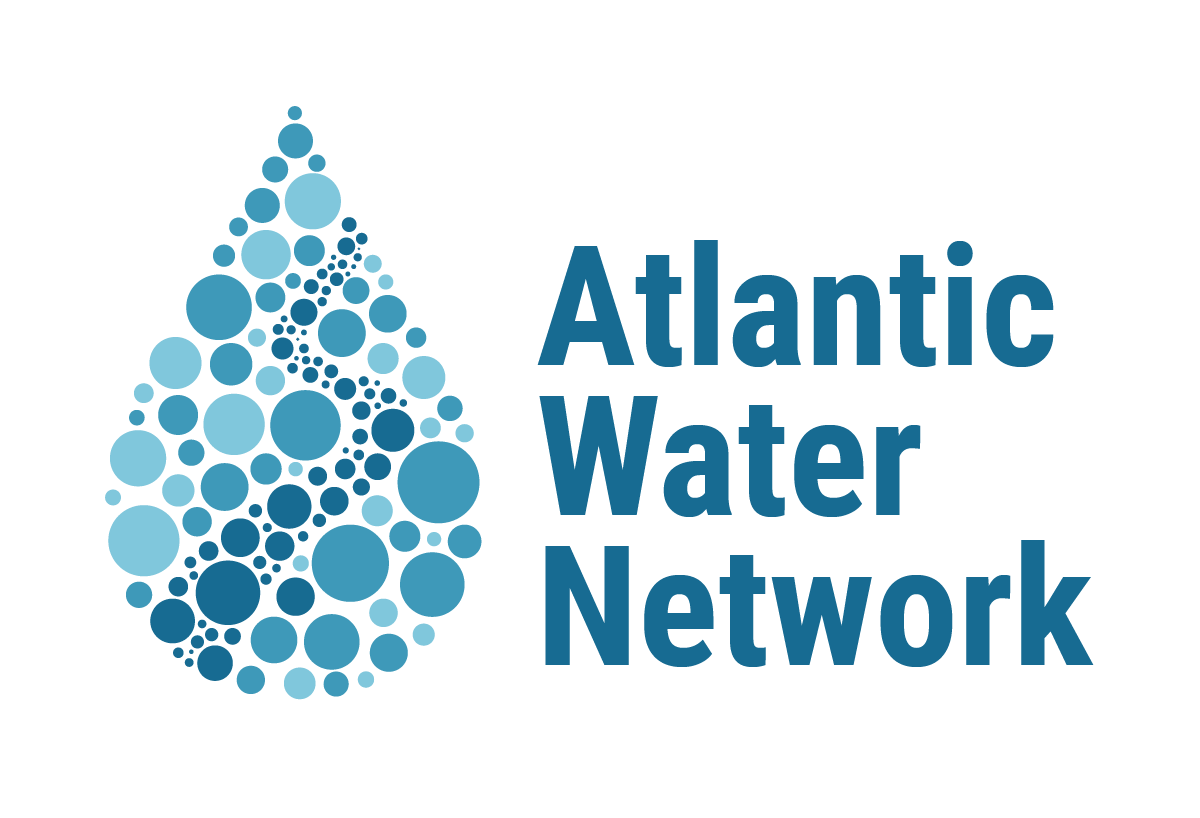Tools & Resources
Assessment inspiration
Here are a few examples of report cards and reports that we think do a good job in describing water health.
Canadian initiatives
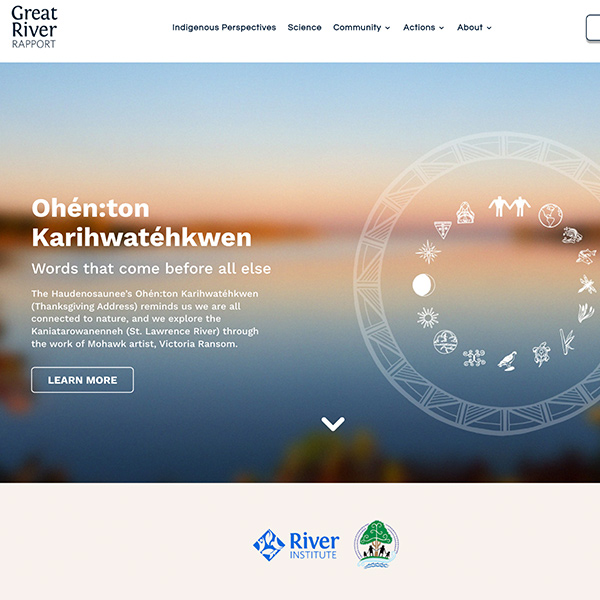
Great River Rapport
Co-led by the Mohawks of Akwesasne and the River Institute, this collaborative, Indigenous-informed report combines traditional knowledge, scientific research, and stunning visuals to make watershed health data engaging and accessible.

Ottawa River Reportcard
The Ottawa Riverkeeper have done an amazing job going into the scientific depth of a full assessment, while still bringing accessible, report-card style results to the public, with tangible calls to action!

State of the Great Lakes Report
With a focus on key indicators and assessments, it’s a great example of expressing complex water science with a focus on standardization and sharing a common vision.

Government of Canada environmental indicators (water)
Environment and Climate Change Canada look at river water quality, phosphorus levels, pollutant releases, and water quantity—to assess freshwater health, track trends. These reports are a hidden gem!

Ontario Watershed Report Cards
Easy-to-read A–F grades on water quality, forest cover, and groundwater help residents and policymakers take local action. These are consistent across 36 conservation authorities!

Mackenzie Basin State of Aquatic Ecosystem Report
Is a comprehensive report that braids science and Indigenous Knowledge and includes four indicators (water quality, water quantity, habitat and species, and health and well-being).
Inspiration from around the world
We were inspired by multiple initiatives from around the world. These initiatives showcase global leadership in transparent waterway health reporting, open data sharing, and community engagement.

Chesapeake Bay, USA
They have developed comprehensive systems for assessing and sharing data that are truly admirable for their integration. Their report cards: EcoHealth Report Cards and the State of the Bay Report.
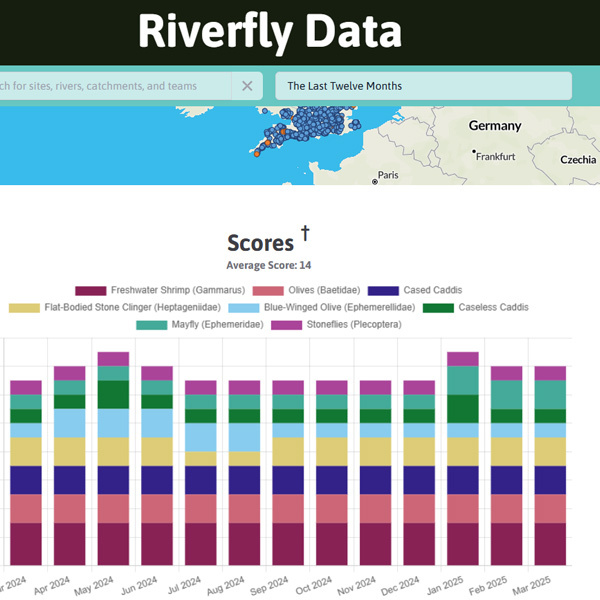
United Kingdom Environment Agency (EA) & Riverflies
Catchment Data Explorer provides plain language scoring for a comprehensive suite of health and threat indicators (by river segment). The EA also works with community data from the impressive Riverfly Partnership when community testers get poor invertebrate scores.

New Zealand
This system is another very impressive integration of both collecting and reporting data. Land, Air, Water Aotearoa (LAWA) shares real-time water quality data for 1,500+ sites. Cultural Health Index (CHI) integrates Māori perspectives into freshwater health assessments.
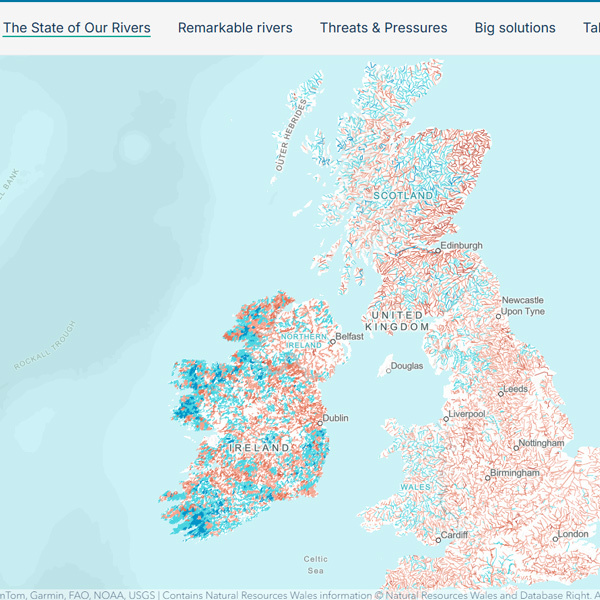
Rivers Trust UK
State of our Rivers Report shares yearly insights for the health of rivers in the UK. Each river is assigned a score based on both chemical and ecological health. Plus, they finish

Swim Drink Fish
Swim Guide, an initiative by Swim Drink Fish, hosts beach and water quality information around the world, to let people know where and when they can swim.

Wisconsin, USA
We have learned so much from these folks! Citizen Lake Monitoring Network engages volunteers in water quality monitoring. Wisconsin Water Quality Report to Congress provides public assessments of water conditions.
Water data Tools
There are so many great initiatives and useful tools in Canada related to water. Below, we have highlighted a few. This list is by no means comprehensive, and new tools are launched each year!
Beyond the below, we also want to shout out HydroSHEDS, and Lake Winnepeg Foundation, as other inspirational data resources!

DataStream
A nation-wide free and open data platform for water quality data, hosting data from government, community groups and academic research. DataStream has five active data hubs as of 2025 (datastream.org).

HYDAT
The Water Survey of Canada collects and compiles hydrometric data at nearly 8,000 stations across the country. Real-time and historical flow data is shared openly on the HYDAT database and can be viewed and downloaded (wateroffice.ec.gc.ca)

CABIN
Canadian Aquatic Biomonitoring Network (CABIN) is a collaborative network managed by Environment and Climate Change Canada that shares protocols for biomonitoring and hosts benthic macroinvertebrate data across the country (canadian-aquatic-biomonitoring-network).

Atlantic Water Network
The Atlantic Water Network (AWN) is Atlantic Canada’s hub for community-based water monitoring and sharing data. They also work with DataStream on the Atlantic DataStream (atlwaternetwork.ca).

Skeena Knowledge Trust
The Skeena Knowledge Trust is home to the Skeena Salmon Data Centre and the Skeena Maps Portal, the most comprehensive sources of information on salmon, water, and ecosystems within the Skeena watershed (skeenatrust.ca).
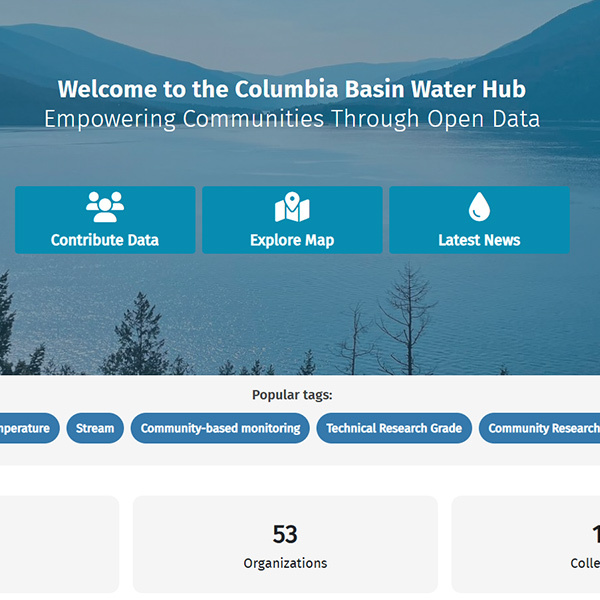
Columbia Basin Water Hub
The Columbia Basin Water Hub is part of Living Lakes Canada’s Columbia Basin Water Monitoring Framework. The Water Hub hosts water quality and hydrology data for the Columbia Basin from multiple sources that are accessible to the public (data.cbwaterhub.ca).
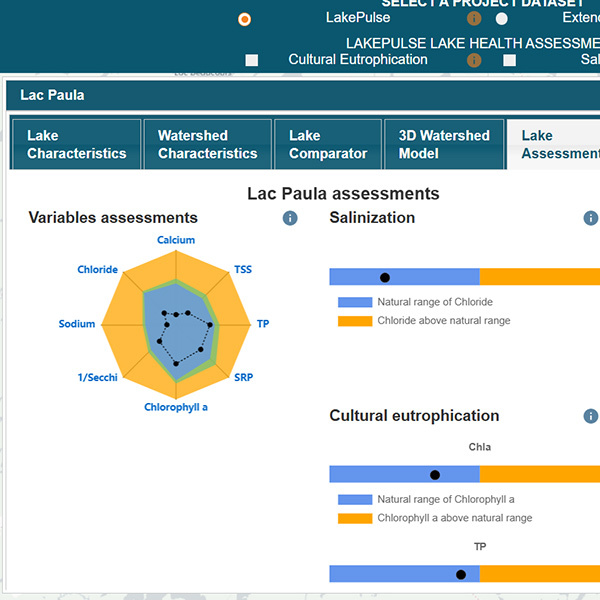
Lake Pulse Network
LakePulse is a NSERC nationwide project examining a wide range of problems affecting our lakes. The portal shares lake assessments for 664 lakes across the country (lakepulse.ca).
educational resources
Canadian Resources

Water Rangers Educational Resources
Teach water quality monitoring with our hands-on testkits and educational framework! Our educational resources include lesson plans, curriculum connections, printables, and more to support to bring real-world environmental science into the classroom.

Canadian Ocean Literacy Coalition (COLC)
These inspirational folks work to advance ocean (and freshwater!) literacy through research, collaboration, and education. Their Blue Learning Lab is a national hub for water literacy, connecting classrooms to engaging resources that explore the links between ocean, freshwater, and climate. We hope you’ll join us in celebrating Ocean Week Canada this June!

Watersheds Canada
Education for both youth and adults about shoreline health! Watersheds Canada has built a virtual Freshwater Stewardship Community plus incredible tools to naturalize your shoreline, restore fish habitat, and more. They provide monthly webinars, many education resources and networking opportunities to the community.
Learn from the rest of the world
UNITAR Global Water Academy (UGWAR) – A learning initiative from the United Nations Institute for Training and Research (UNITAR) designed to equip educators and policymakers with the knowledge and skills to address global water challenges and advance SDG 6 (globalwateracademy.org).
UNESCO – A New Blue Curriculum – A toolkit designed to help policymakers and educators integrate ocean literacy into national education frameworks unesco.org.
SHORE Project (EU) – A European initiative connecting schools to ocean literacy activities, focusing on major water bodies like the Baltic, Mediterranean, and Danube (shoreproject.eu).
Toolkits and guides
Here is just a small taste of the rich resources that are available (and should be shared) for us to take water monitoring to the next level. More to come here!

Business case toolkit
This toolkit, designed through the Canadian Water Monitoring Collaborative, guides you through the process of creating a business case for your water monitoring program. (businesscase.waterrangers.com).

Atlantic Water Network Knowledge Hub
A fantastic learning hub that guides you through the steps of creating your monitoring plan. They also have many helpful links to other resources and a log-in-able tool to write out your plan (atlwaternetwork.ca).
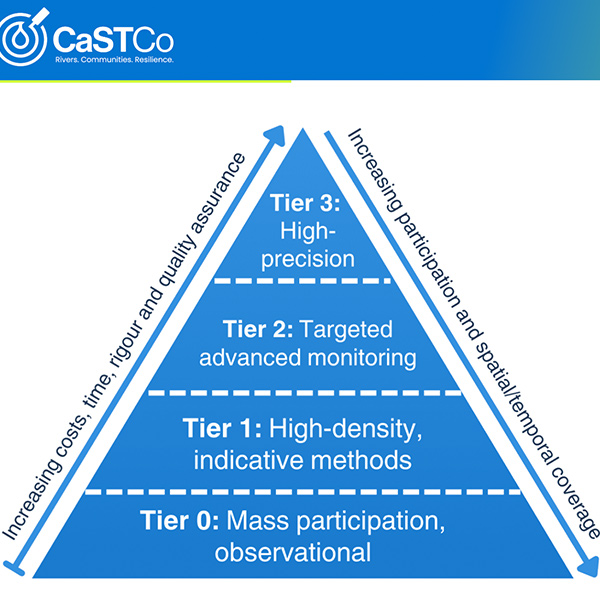
CaSTCo
In the United Kingdom, Catchment Systems Thinking Cooperative (CaSTCo) is building a common approach to sharing data on river health. This includes understanding data quality and how to use different types of data effectively (castco.org)
Community science initiatives
There are opportunities for getting involved in programs across the country. Here are just a few examples of National or large regional groups (it’s by no means exhaustive!). We encourage you to search for the on-the-ground groups in your area!
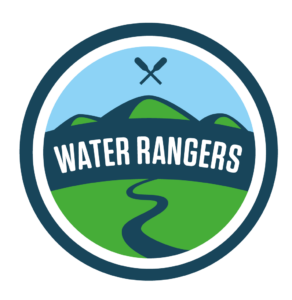
Water Rangers
A national program providing user-friendly test kits for volunteers to monitor water quality in lakes, rivers, and streams across Canada (waterrangers.com).
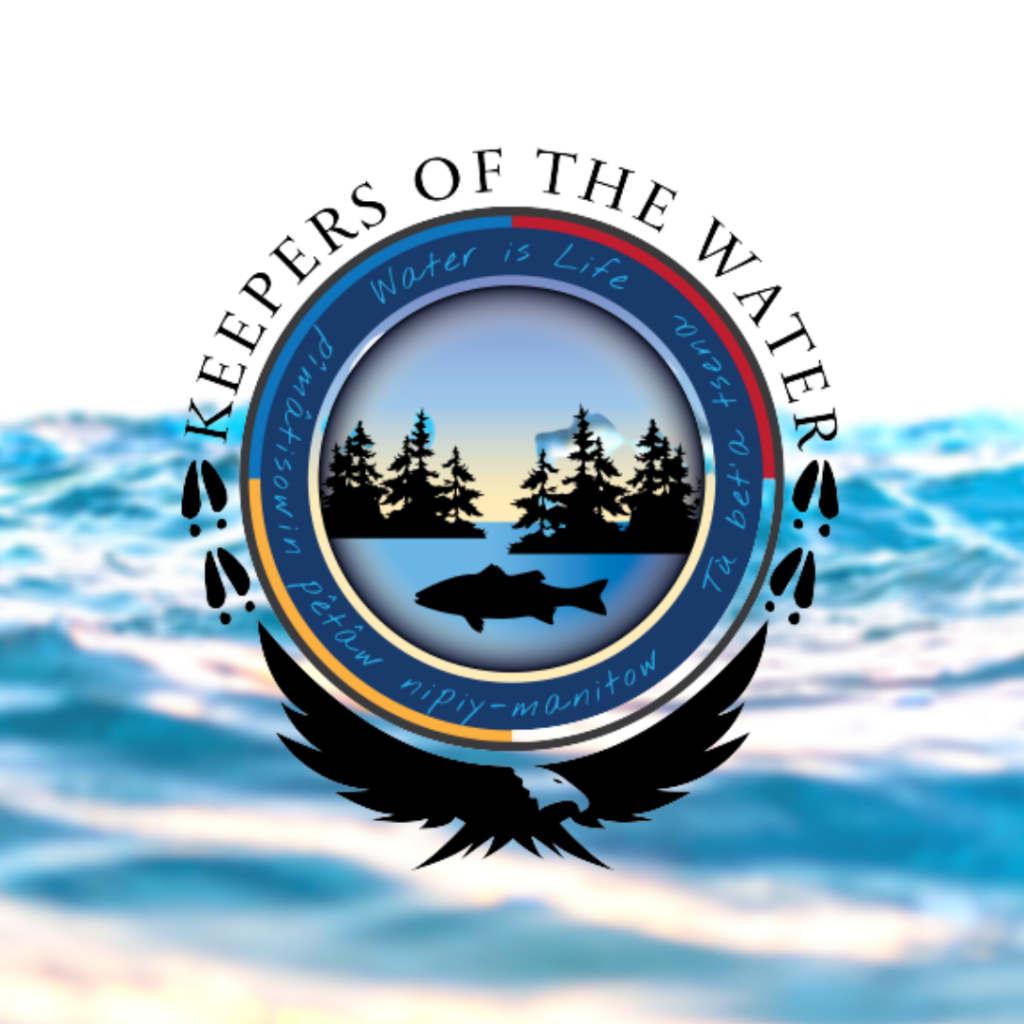
Keepers of the Water
Keepers of the Water is an Indigenous-led coalition of First Nations (Treaty 6, 7, 8 and 11), environmental groups and concerned citizens working together for the protection of water, air, land, and all living things within the Arctic Ocean Drainage Basin (keepersofthewater.ca)

Lake Winnipeg Community-Based Monitoring Network
Volunteers collect 1,000+ water samples annually to track phosphorus pollution hotspots, guiding nutrient reduction efforts (lakewinnipegfoundation.org).

Swim Drink Fish
Engages communities in water quality monitoring, citizen science, and digital tools like Swim Guide (used by 8M+ people) to track pollution, test for bacteria, and advocate for swimmable, drinkable, fishable water across Canada (swimdrinkfish.ca).

The NORDIK Institute
The Northern Ontario Research Development, Ideas and Knowledge (NORDIK) Institute is an innovative community-based research hub affiliated with Algoma University and dedicated to building healthy, resilient communities in Northern Ontario (nordikinstitute.com).
Just a few more…
- Indigenous Guardians Programs – Many Indigenous Guardian initiatives include water monitoring as part of their work, using both traditional knowledge and Western science to protect waterways.
- Living Lakes Canada – Engages communities in long-term freshwater monitoring, tracking climate change impacts on lakes, rivers, and groundwater (livinglakescanada.ca).
- Lake Erie Volunteer Science Network (USA and Canada) – The Lake Erie Volunteer Science Network (LEVSN) is a binational multiorganizational community that collects and shares water quality data on Lake Erie (lake-erie-volunteer-science-network).
- Adopt-a-Stream (North America) – Thousands of volunteers conduct long-term water quality monitoring on local streams, measuring factors like pH, dissolved oxygen, and pollutants (adoptastream.ca).
- FreshWater Watch (Global) – A worldwide network where citizen scientists collect water quality data (nutrients, turbidity, pollution) to support scientific research and policy change.
- Global Water Watch (International) – A citizen-driven project where communities test water quality in rivers and lakes, helping identify pollution sources and protect drinking water supplies.
- Riverfly Monitoring Initiative (UK) – With 3,000+ volunteers monitoring 200+ rivers, ARMI tracks river health using aquatic insects, providing an early warning system for pollution (riverflies.org).
- Community Water Watch (Fiji) – Local students and residents monitor water pollution levels, providing real-time data to improve water security and climate resilience in the Pacific Islands.
- …and so many more!
